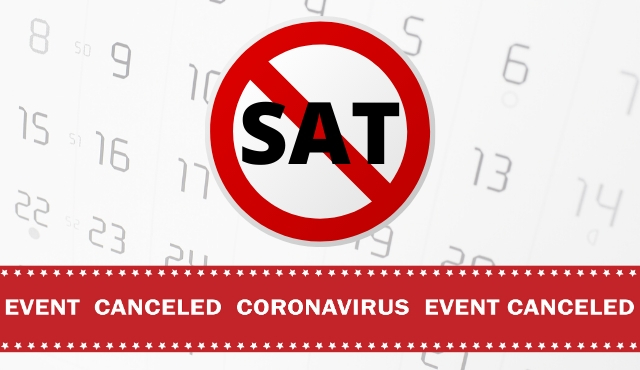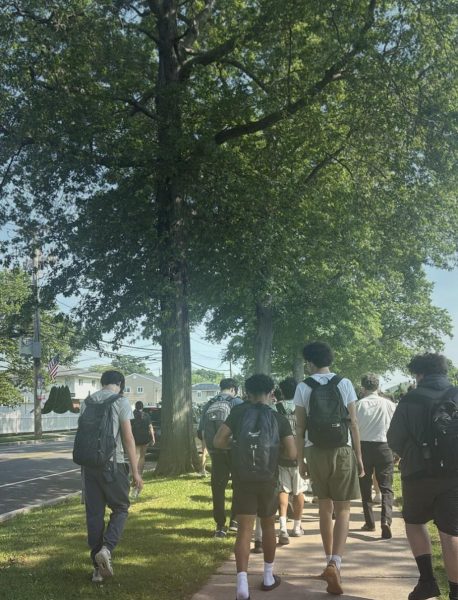The Unfortunate Reality of Testing for Seniors
In the perfect world, colleges and universities wouldn’t care about standardized testing, reducing the stress of students across the country as they have one less thing to worry about for their applications.
But now, many higher institutions are going test optional, yet students’ worries are not reduced, but may be at an all-time high. With multiple local high schools finding positive cases among their staff and students, SAT and ACT tests are being cancelled left and right, leaving students without test scores to report on their applications. And though a number of universities assure their prospective students that it will not affect their acceptance status, masses of seniors remain panicked.
Many seniors receive their cancellation news and much to their dismay, immediately find that all other test locations are filled. Their only option may be a test a month later in a state two hours away. But if seniors aren’t the students signed up, who is taking all the spots?
11th graders who like to get a head start on their college journey sign up for tests as early as November, though BHS guidance counselor Mr. Benjamin advises students to take their first test in March of their junior year. While this usually does not pose a problem since in a regular year rising seniors finish their tests in the summer months. If seniors don’t achieve their goal score, they have the beginning of the school year to pack in last minute tests early enough to receive scores in time for their applications. However, due to Covid-19, current seniors had all their test dates cancelled from March to July, leaving September to November the only opportunities that seniors can get their highest scores. This poses a major problem, especially to those who aim to be admitted during Early Action or Early Admission pools. Though test scores are not required, it could greatly bolster an application in the extra competitive admission rounds.
Junior Bernardo Jimenez thinks “upperclassmen have known details about these tests longer, so they should have already signed up for them.” But the situation is not as simple as it seems. Many seniors who signed up for spring tests had all the dates cancelled. Over the summer, the testing organizations closed registration and only opened up in the last week of August for fall test dates. This resulted in virtual waiting lines to access testing sites, with wait times as long as three hours. By the times seniors were able to register, almost all the September slots were taken and the only option for early tests would be one state over.
After seeing the crisis seniors are facing, BHS decided to host the SAT this past September to help its students. Mr. Benjamin says that “BHS usually hosts the SAT 3-4 times a year, but this year we added an extra test in September to give seniors another opportunity because they were deprived” of the other testing dates. Some students offer the solution of Bethpage limiting test spots to only students here but that can only be the case if “it is an SAT test offered [during] school,” which is not the current situation. Mr. Benjamin is sympathetic towards seniors, acknowledging that “you’re limited to the amount of tests, especially this year… but it was open to everybody.” As a national test center, there isn’t much more that BHS can do to help only seniors since they’ve tried to optimize the situation for their struggling students.
Though upperclassmen appreciate the help from the school, it hasn’t done enough to alleviate the problem of cancellations and seat shortages. Senior Gabby Kamilar planned to take her first official SAT in March, “but it was cancelled the night before… when our school, along with many other [schools] first announced [their] “temporary” closing.” Since then, Gabby’s test has been scheduled and cancelled three separate times and she will be taking her first ACT at the end of this month.
Not only is test cancellation stressful, but also very costly. When preparing for these tests, some students opt for in-school prep classes while others may spend hundreds of dollars on private tutors; leading to a great deal of investment and hours of hard work lost. This was the case for senior Maya Maciel-Seidman, who was “preparing for the SAT from December until March” when the test was cancelled and she does not plan to take the SAT in the future. Not being able to see the hard work poured into the SAT not pay off only exacerbates the issue.
But what does the future hold for current juniors who are just beginning their college journey? For some, the current situation bears no weight since they’ve only taken the PSAT and Practice ACT and are beginning to prepare for the official tests. Aurrel Bhatia, a junior, feels that it’s only fair for testing centers to prioritize senior registrations and “underclassmen don’t really have much use for them.” This holds true since right now, tests are preliminary tests to gauge where they must work the most to improve scores, which could just as well be done with the PSAT and PACT that have already been taken.
The best thing juniors can do in the present moment is to focus on the extracurricular activities they participate in, building community service hours, and enrolling in classes that will make them competitive applicants since this is all too late for applying seniors. Additionally, they can consider potential interests and occupations for their futures and build a list of colleges that would best suit them.This way, juniors can remain proactive in their college journey while allowing seniors to maximize their last few opportunities for tests.
Though times are hard now, Mr. Benjamin hopes that “colleges will realize they don’t need to rely on tests to indicate what a student is capable of achieving academically” and “the whole students [would] be considered when applying to college [with a larger] focus on what a student can offer to their community, academically and otherwise.” With these words of wisdom, I encourage seniors to put their best foot forward with their applications because you’re so much more than a number!

Isabelle is currently a senior at Bethpage High School. She is a proud member of the Masquers Guild as an actor, stagehand, and director of AV. She loves...






